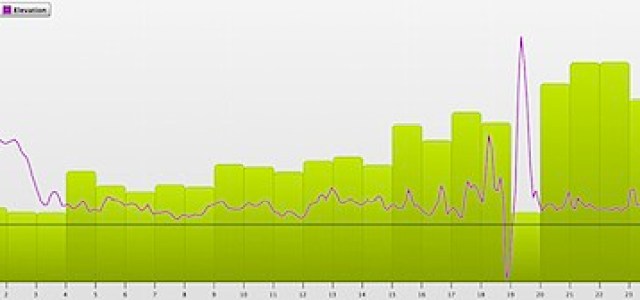Streetcar is perhaps the finest example I’ve come across of an integrated solution. I say integrated in the truest sense of the word (as in the knee bone is connected to the thigh bone) – it links web technology, call centres, mobile phones and the physical world of automobiles and petrol stations in one, apparently seamless, whole.
For instance, I recently booked a car on the web just before leaving work. I estimated what time I’d get to the car’s location, some 100 yards from my house but about 90 minutes travel from where I was when I booked it. I guessed wrong, by about 20 minutes, and so found out that Streetcars (as you’d imagine but likely never test) are timelocked – I’d always wondered what would happen if I tried to unlock a car “out of hours” and now I know.
Even a year ago, I would have had to wait it out, make a call or go home and rebook the car.
This time, I used the Streetcar iPhone app – no more than 4 screen touches and I’d extended my booking to include the missing 20 minutes (rounded to a half hour). The charge? An extra 97p. Before I put my iPhone back in my pocket, I had a confirmation text and the doors unlocked on demand (not quite Open Sesame but close). Simply stunning.
Later in the evening, I needed to extend my use of the car a couple of hours. The iPhone came out again, I could see no one had booked it after me, and I had the car until I needed it (at no extra cost).
This joining of web technology, a virtual connection to a physical car parked in front of me, mobile phones and what is doubtless a complex demand forecasting and pricing model behind the scenes appears, to me as a consumer, effortless. Streetcar is the Apple of car rental companies. Perhaps they prefer to call themselves a provider of personal transportation solutions. They so integrate the hardware and the software for booking, unlocking and managing the transaction that I can’t help but be amazed. I realise I’m gushing.
I wondered, then, what else we might do with Streetcar. At the moment, I don’t tell them in advance where I’m going, but it occurs to me that even without that knowledge we could use it to:
1) Collect traffic speed data and build a comprehensive map of speed across a city, so improving satellite navigation journey forecasts, showing the effect of roadworks or the impact of traffic policy changes (traffic light phasing for instance). Streetcars doubtless stay in their local area – one quarter of car journeys in the UK are less than a mile – but a broad enough network of cars would provide great coverage.
2) Test air pollution in the city, collecting data in the same way that speed data could be collected.
3) Attach google streetview cameras and so have near continuous up to date images (allowing for post-processing time to remove number plates and faces)
But what if I told Streetcar where I was going when I booked my journey, at least roughly? Could we then:
1) Let people reserve a place in your car for the same journey you’re making? They’d pay a small fee and you’d pay less for the car? Plans change, of course, so these would have to be “standby” tickets but could it help bring about the notion of car pooling? To that point, could Streetcar faciliate car pooling across the nation using its own software to help manage cars that were not even part of its fleet, letting anyone book places on journeys (recognising the need for some kind of authentication process). Streetcar could become the biggest social network in the UK, integrating people and travel
2) Building on carrying people, perhaps it’s even possible that Streetcar could move goods around cities – you want to take a car from A to B and Streetcar gives you a discount if you also take a package from C to D, both of which are within a reasonable distance of your straightline journey; again, you get a discount for carrying out this additional errand.
Now, entirely separate from all that, which is probably nonsense, and switching to government solutions (which might be no less nonsense), could Streetcar:
1) Manage the entire portfolio of government cars siting them close by to government buildings, or within existing secure car parks as needed, putting in place an online booking system, managing the fleet and ensuring that where senior people needed drivers they were available? And so reduce both the costs of running the fleet and the need for some staff to travel by taxi, train or ‘plane?
2) Is such a booking and tracking system something that could help manage supply and demand for ambulances through providing better information of what was needed, where and when? I have zero knowledge on how sophisticated ambulance capacity management systems are so this may be way off base.
Funny though, despite all the Streetcar integration, the dashboard clock was still showing the time before the clocks changed. Digital clocks on multiple devices remain, it seems, as difficult a problem as government’s own “change of address.” A problem for another day then.








